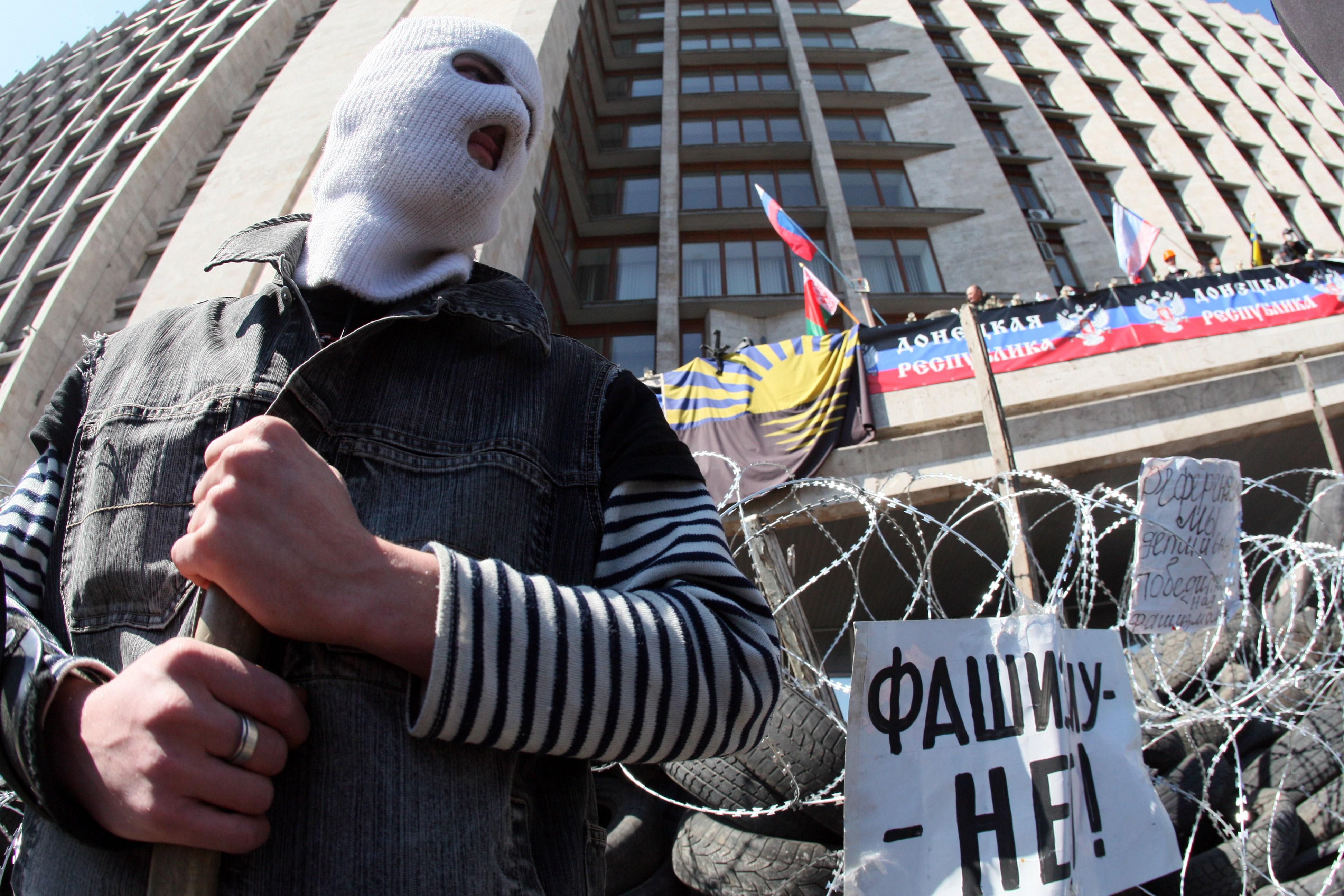We’ve now passed a deadline declared by the government in Kiev for pro-Russian separatists to leave the government buildings they occupied in several cities in the east of the country. The armed militants from the self-declared “People’s Republic of Donetsk” have remained in place, but aside from sightings of a few helicopters, Kiev’s promised “anti-terrorist” operation hasn’t materialized either.
It seems as though Ukraine is facing the highest risk of civil war and Russian intervention on the Ukrainian mainland since the crisis began. There don’t appear to be a whole lot of good options on the table for Ukraine’s government and its Western backers. An operation to restore control of the east—which would likely be carried out by the military as trust in the interior ministry troops who were strongly identified with former President Viktor Yanukovych is low—seems likely to spark a Russian incursion to “protect” the rights of ethnic Russians. Acting President Oleksandr Turchynov has tried to appease the seperatists demands, saying he would be open to a referendum on greater autonomy of Ukraine’s eastern regions, but that doesn’t seem to have swayed anyone on the ground in Donetsk.
Turchynov today called for U.N. peacekeepers to be deployed in the country, but given Russia’s veto on the Security Council, that seems like a non-starter.
Washington has been steadily targeting more individuals and companies for sanction, and reportedly has more measures in the works, but efforts have so far been hampered by the fact that European countries have been reluctant to go as far as the U.S. in sanctioning Russia, as well as the fact that Russia’s leaders seem for the most part not to care about the economic consequences of all of this.
Others in Washington, notably Sen. John McCain, have suggested providing weapons to the Ukrainian government. In Berlin today, an adviser to Secretary of State John Kerry said, “Obviously we are looking at that as an option.”
But unless the U.S. is really going to put the full weight of its military might behind Kiev, this seems likely to only prolong the fighting without actually tipping the balance in favor of Ukraine’s dysfunctional military.
It’s still not a forgone conclusion that Russia is preparing a full invasion. A unified Ukraine with significant autonomy for the east and a significant political role for Russian-speaking Ukrainians still seems like a better outcome for Russia than a bloody civil war on its border. On the other hand, if the long-term goal is simply territorial expansion, Putin will probably never have a better opportunity than he has right now.
At the very least, Putin will come out of this demonstrating that the post-Soviet borders are no longer set in stone. Where they still exist, it is because he has deigned not to challenge them.
As one paramilitary fighter occupying a government building in Slaviansk told Reuters, “The borders between Ukraine, Russia and Belarus are artificial and we are here to take them away.”
